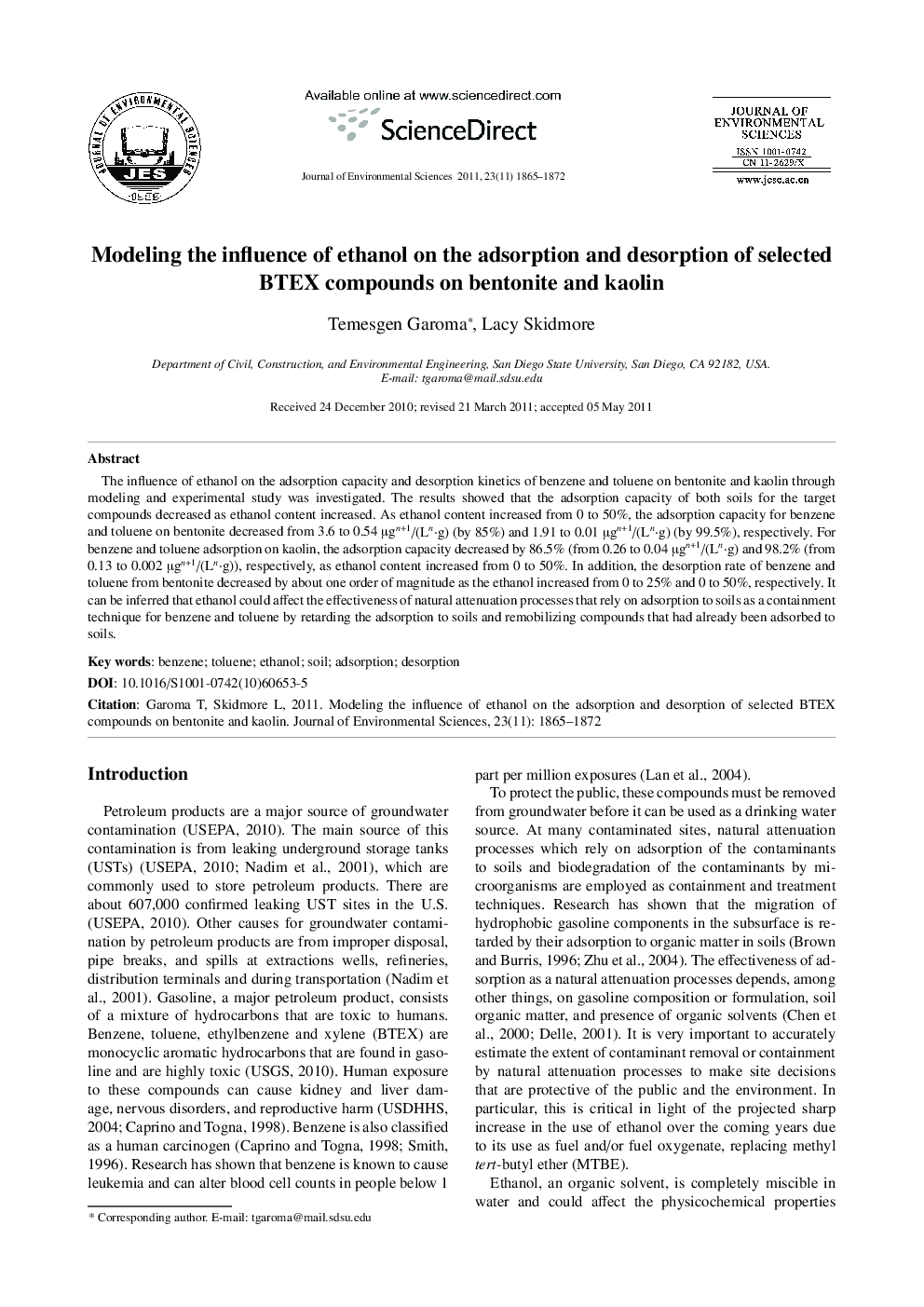| Article ID | Journal | Published Year | Pages | File Type |
|---|---|---|---|---|
| 4455345 | Journal of Environmental Sciences | 2011 | 8 Pages |
The influence of ethanol on the adsorption capacity and desorption kinetics of benzene and toluene on bentonite and kaolin through modeling and experimental study was investigated. The results showed that the adsorption capacity of both soils for the target compounds decreased as ethanol content increased. As ethanol content increased from 0 to 50%, the adsorption capacity for benzene and toluene on bentonite decreased from 3.6 to 0.54 μgn+1/(Ln·g) (by 85%) and 1.91 to 0.01 μgn+1/(Ln·g) (by 99.5%), respectively. For benzene and toluene adsorption on kaolin, the adsorption capacity decreased by 86.5% (from 0.26 to 0.04 μgn+1/(Ln·g) and 98.2% (from 0.13 to 0.002 μgn+1/(Ln·g)), respectively, as ethanol content increased from 0 to 50%. In addition, the desorption rate of benzene and toluene from bentonite decreased by about one order of magnitude as the ethanol increased from 0 to 25% and 0 to 50%, respectively. It can be inferred that ethanol could affect the effectiveness of natural attenuation processes that rely on adsorption to soils as a containment technique for benzene and toluene by retarding the adsorption to soils and remobilizing compounds that had already been adsorbed to soils.
